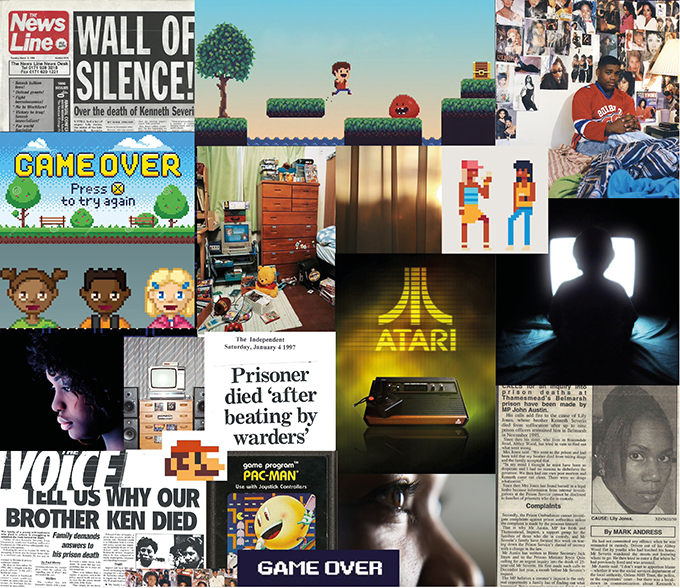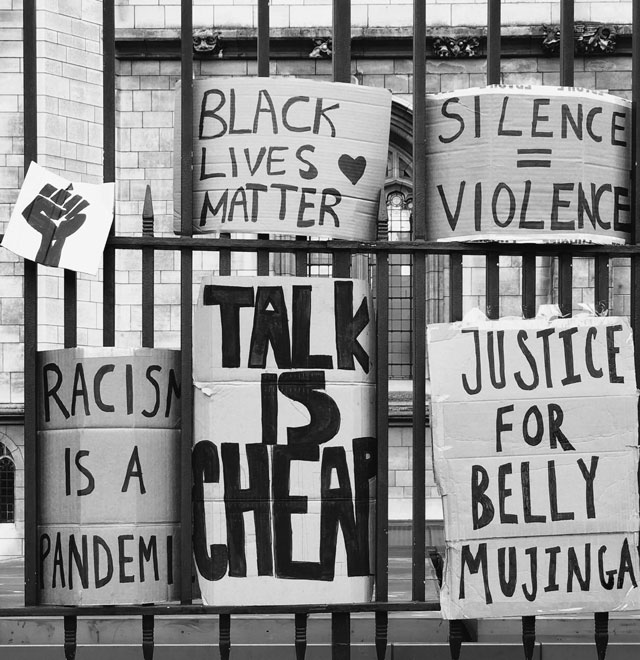
Introducing Kenneth
A true story of a man who was a father, a son, a brother and an UNCLE. His name is Kenneth Severin and he was a wonderful man. However, his life ended because of a system which chose to see his blackness as criminal and overlooked his mental health.
“I can’t breathe” and the “Black Lives Matter is more than a hashtag for black people around the world and in the UK. Sadly for Kenneth Severin’s family, these words echo an experience they have lived with for 25 years. Kenneth, although suffering from serious mental health problems, was remanded to Belmarsh prison by the magistrate’s court – a decision which cost him his life. The officers involved in Kenneth’s murder received no criminal or disciplinary charges and his family were left without justice.

Short Film
Based on a true story writer/director Michelle Jones lost her uncle (Kenneth Serverin) in 1995 when she was 14 years old. The film is a coming of age story set in 90’s London, of a teenage girl whose uncle (with no criminal record) dies in prison awaiting trial. Set on the day of her uncle’s funeral, this story aims to share a moment in time as she speaks to her deceased uncle. The short film will touch on their relationship, alongside the roller coaster of emotions this young woman experienced on the day of his funeral. A mixture of film and animation will be used to tell the story. The game is integral to the story because Kenneth introduced Michelle to video games. Pac Man was the first game Kenneth taught Michelle, a game they bonded over.
UNCLE is a story which shows the person behind the headlines. A story that puts the spotlight on the family members left behind.
Mental Health Project
“Uncle” the project uses film to create an open dialogue with young people about mental health. The initial purpose of this short film was to show the person behind the headlines and remove the shame associated with Kenneth’s death. However writing “Uncle”, helped Michelle confront new feelings and old emotions she wasn’t able to comprehend as a child dealing with Kenneth’s tragic death.
Given this new perspective and understanding, the purpose of this film has evolved. We now would like to use the film to help young people understand, identify and talk about mental health. This is because “1 in 5 young people aged 16-24 experience a common mental illness such as anxiety or depression”. Especially now in this current climate, with the recent murders of Ahmad Aubrey and George Floyd. We want to help support young people by creating learning resources which can be utilised alongside “Uncle” the film to open up dialogues and reach those in secondary schools and colleges, that are often unintentionally overlooked. Look out for updates on this project in our Blog

